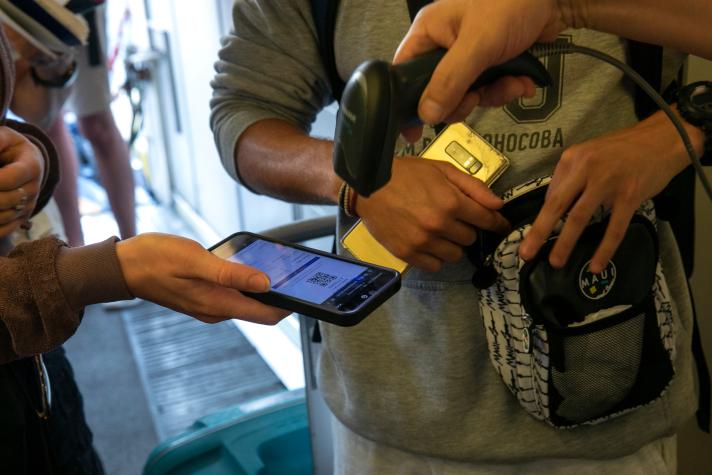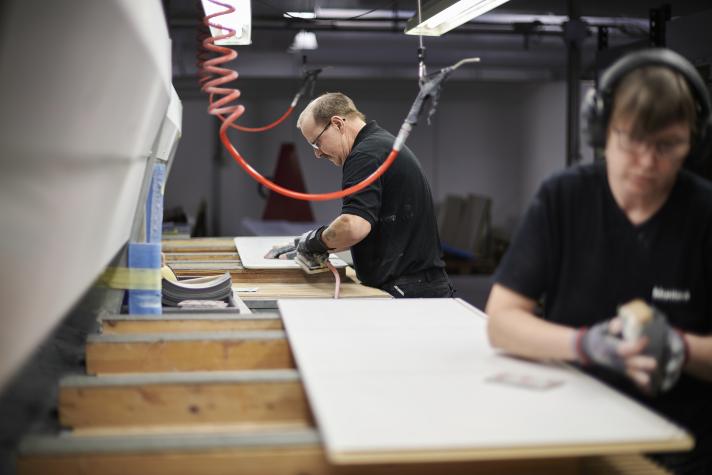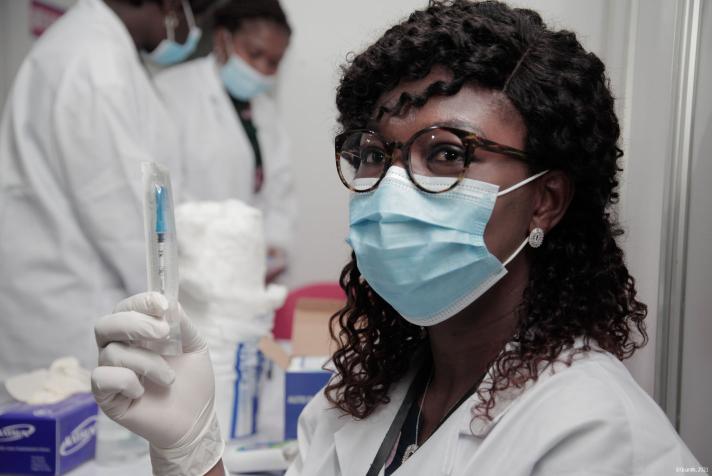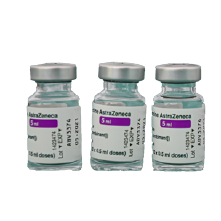In 2020, the world was hit by the worst pandemic of our generation. Thanks to the Commission’s decisive actions, the EU weathered the storm of COVID-19 and helped protect lives, livelihoods and the economy.
Overcoming the COVID-19 pandemic together
At the heart of the Commission’s response to COVID-19 were speed, cooperation, and solidarity. Only a coordinated approach based on cooperation would be effective for the EU and Member States to respond to the emergency.

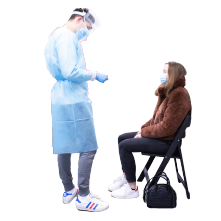
We massively supported the research and rollout of vaccines: safe, effective vaccines were developed in record time, and the Commission secured up to 4.6 billion doses on behalf of Member States to protect Europeans and help third countries. Over 80% of the EU adult population received at least the first vaccination course against COVID-19.
After the first shock led to national measures closing national borders and imperilling the functioning of the Single Market, we launched the Green Lanes, which facilitated the circulation of freight and prevented the shortages of basic goods. We also kept our internal borders open with the Digital COVID Certificate. The EU Digital COVID Certificate was put in place in record time, and its entry into force on 1 July 2021, facilitated summer holidays for our citizens.
We deployed tools to help people, businesses, and Member States surmount the economic and social consequences of the pandemic. SURE helped about 31.5 million employees and self-employed people and over 2.5 million businesses in 2020, allowing people to keep their revenue and businesses to retain the talent that they would need later.
And then came NextGenerationEU, the most ambitious recovery plan in our history. With over €800 billion, NextGenerationEU has spurred the post-pandemic recovery, while at the same time modernising our economies and boosting the clean and digital transitions.
Preparing for future health crises
Looking towards the future, we have started building a European Health Union to prepare and respond together to health crises. We are making sure that medical supplies are available and affordable, and that Member States work together to improve prevention, treatment and aftercare for all sorts of diseases, including cancer. We also reinforced the competencies of the European Medicines Agency (EMA) and the European Centre for Disease Prevention and Control (ECDC), so that they can better support Member States; we set up a Union list of critical medicines and a Critical Medicines Alliance to prevent shortages of key active substances; and the new European Health Data Space, will improve citizens’ access to health data anywhere in the Union, while also creating a secure framework for the use of health data for research and innovation.
Moreover, within the Commission we established HERA, the Health Emergency Preparedness and Response Authority. HERA is ensuring that the EU and Member States are better prepared to face future cross-border health threats, and that the count with the medical supplies they need. It is also funding the procurement and deployment of medical countermeasures, including the build-up of rescEU strategic reserves across Europe; and through HERA Invest, it is supporting health SMEs and start-ups with innovative ideas.
Thanks to HERA’s quick reaction, as an Mpox outbreak emerged in 2022, the EU secured the delivery of effective vaccines in only weeks.
Leading international solidarity
The Commission was also on the forefront of international solidarity, ensuring that safe and effective vaccines were accessible across the globe. The Commission and Member States mobilised €53.7 billion to help partner countries cope with the health emergency. Through the Civil Protection Mechanism, we provided over 190 million medical and personal protective equipment items for third countries, and Team Europe remains the largest single vaccine donor to third countries via COVAX.
Our support to our partners’ health preparedness did not stop with COVID-19. In the last years, through Global Gateway, Team Europe is investing over €1.2 billion in local manufacturing of vaccines, medicines and health technologies in Africa. Capacities are being boosted in South Africa, Senegal, Rwanda, and Ghana, including for mRNA vaccines technology. We are funding local manufacturing of mRNA vaccines in Africa, for the African people.
Key policies and achievements
- Developing and administering vaccines in record time
- Helping Europeans to travel safely in the pandemic across the EU
- Preventing shortages of products thanks to the Green Lanes
- Protecting livelihoods and relaunching our economy with innovative economic strategies
- International solidarity and vaccine-sharing with the world
- Better prepared for the future: the European Health Union and HERA
Developing and administering vaccines in record time
In June 2020, the Commission launched its EU Vaccines Strategy. At the core of the Strategy was the approach that the Commission, together with the Member States, would negotiate contracts with different pharmaceutical companies for the development and purchase of vaccines. This allowed to take on board the needs of all Member States and the joint approach was a success.
The Commission’s action was unprecedented. It would contribute to finance the development of effective vaccines by pharmaceutical companies with the promise of purchasing later from those that would be successful.
Thanks to this course of action, it took only six months between the adoption of the EU Vaccines Strategy and the delivery of the first batches of COVID-19 vaccines to Member States.
The Commission secured up to 4.6 billion doses of vaccines against COVID-19 with pharmaceutical companies on behalf of Member States, guaranteeing enough availability for them to purchase directly from the companies. Thanks to this, over 80% of the EU adult population received the initial full vaccination course against COVID-19.
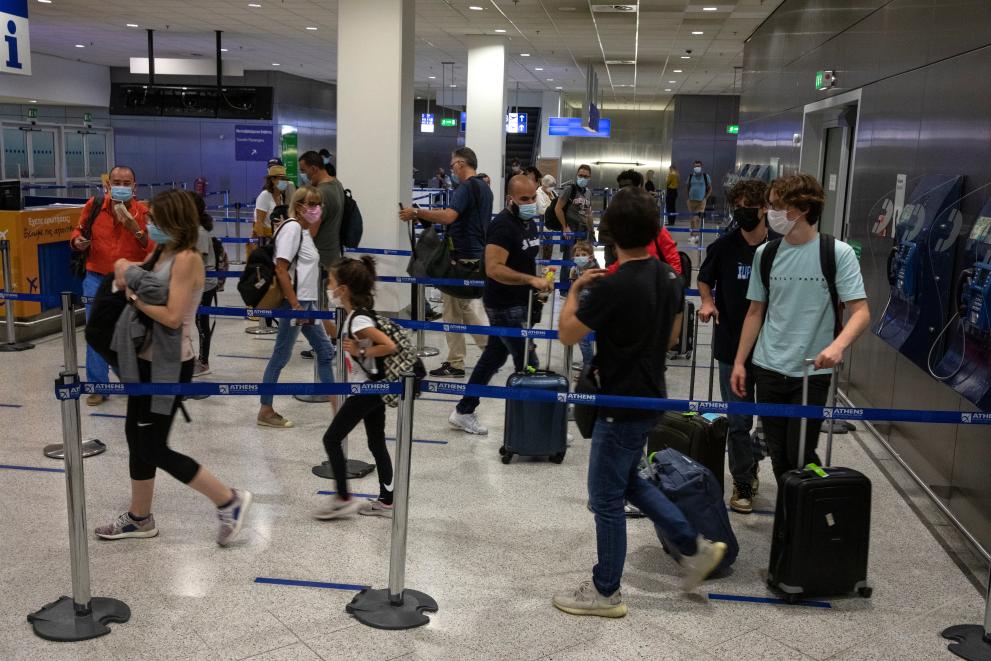
As confinement, vaccine and testing requirements complicated travelling, the Commission launched different actions to ensure Europeans could still move across EU national borders.
We proposed travel measures that were adopted by all Member States, we coordinated travel restrictions into the EU from third countries, and we worked on common passenger locator forms and interoperable contact tracing apps.
In March 2021, the Commission proposed the EU Digital COVID Certificate to facilitate safer travel for all. It covered COVID-19 vaccination, testing, and recovery. We got the proposal adopted by 1 July 2021, just in time to facilitate travel for the summer and help European citizens travel over summer safely.
The adoption in just three months was a record in itself.
The Digital Certificate went on to set a global standard. By summer 2023, 2.2 billion EU Digital COVID Certificates had been issued. 78 countries and territories were connected to the EU Gateway, which allows to verify Digital Certificates in a secure way that guarantees individual privacy.
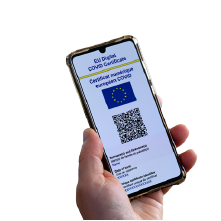
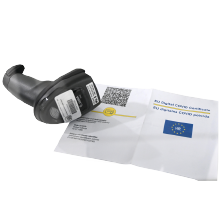
The EU Gateway is proof of the EU’s technological leadership in the health sector, and it has become the basis for the WHO Global Digital Health Certification Network announced in 2023. The WHO plans to add additional uses in the future, for example, the digitalisation of the yellow vaccine booklet and routine immunisation.
The Digital Certificate followed the Commission’s work to synchronise national COVID tracing apps and was a catalyst for further initiatives to digitalise EU health systems, such as the European Health Data Space. As the first sectoral data space following under the European Data Strategy, it will set the tone for other data spaces to come.
In June 2020 the Commission also launched the Re-open EU website, available in 24 languages, to provide people, in a single place, with all information about relevant health and travel measures, including quarantine and testing requirements, of all EU countries plus Iceland, Lichtenstein, Norway, and Switzerland.
Preventing shortages of products thanks to the Green Lanes
As many Member States rushed to close borders the Commission made it a priority to safeguard supply chains and the functioning of the internal market, while prioritising the well-being of transportation workers.
As early as March 2020, the Commission proposed to establish “Green Lanes” to ensure the free flow of goods on Europe’s roads. The border crossings designated as Green Lanes had to be open to all freight vehicles, whatever goods they carry, and checks at the border could not cause waiting times of more than 15 minutes. This strategy limited the risks of shortages for Europeans.
With people confined at home, one of the main challenges of the pandemic was to protect the employment of European citizens. In April 2020, the Commission proposed SURE, an instrument to finance short-time employment schemes across the EU, making sure that people could keep their jobs and their income despite the confinement, and that businesses could keep the workers and skills that they would rely on when activities resume.
SURE helped support about 31.5 million employees and self-employed people and over 2.5 million businesses in 2020. This represents almost one third of total employment and over one quarter of businesses in the beneficiary Member States. SURE continued to protect employment in 2021, while the pandemic continued to hit our societies, supporting about 9 million people and over 900,000 businesses.
In total, €98.4 billion of financial assistance was disbursed to 19 Member States under SURE. To finance this, and for the first time ever, the EU issued social bonds. The Commission has thus become the world’s biggest social bond issuer. Thanks to the EU’s high credit rating, SURE also helped Member States save an estimated €9 billion in interest payments.
The protection of employment facilitated the rapid economic rebound of 2021.
Decisive measures were needed for Europe to relaunch its economy in the post-pandemic era and make up for the lost time. In May 2020, the Commission presented an ambitious recovery plan for Europe: NextGenerationEU. With a total budget of over €800 billion, it is the vehicle to support the economic recovery and to build a greener, more digital and more resilient future for all.
NextGenerationEU puts emphasis on the clean and the digital transition. Payments to Member States are conditional on measurable, progressive results, which motivates authorities to deliver on the reforms and investments that they have committed to.
With the NextGenerationEU:
- We have disbursed €225 billion, bringing about the economic recovery after the pandemic and increasing social and economic resilience.
- The funds have led to substantial reforms contained in national recovery plans, driving change in areas such as the climate and digital transitions, social action, healthcare and institutional resilience.
- Its ambitious funding targets for climate action (37%) and digital action (20%) have been amply exceeded, with 40% of funds spent on climate action, and 26%, spent on digital action. 45% of the funds are directed to social and cohesion actions.
- These reforms also play a role in complementing cohesion policy. Reforms are designed to remove investment bottlenecks, facilitate the rollout of investments, and address structural challenges in Member States.
By issuing EU-Bonds in the financial markets, the Commission has raised funds for NextGenerationEU, and we want to finance 30% of the total amount through Green Bonds, which will make the Commission the largest green bonds issuer in the world. So far, it has raised nearly €50 billion via Green Bonds.
In order support businesses during the pandemic, the Commission adopted in March 2020 a State aid Temporary Framework that enabled swift and effective support to severely affected companies and sectors. It provided Member States with common conditions and a toolbox to help businesses of all sizes, while ensuring that support remained limited to those in actual need.
Under the Framework, the Commission took more than 1,400 decisions and approved over €3 trillion of total State aid.
International solidarity and vaccine-sharing with the world
The virus knows no borders and the pandemic could not be over until it was over everywhere in the world.
The Commission has played a pivotal role in ensuring a global response. Team Europe (the Commission and EU Member States) mobilised €53.7 billion to help partner countries deal with the immediate health emergency, to strengthen their healthcare, water and sanitation systems, and to mitigate the socio-economic consequences of the crisis.
The Commission joined forces with international partners to launch the Coronavirus Global Response, a pledging effort that gathered €15.9 billion in April 2020 to develop and deploy vaccines, tests and treatments for everyone.
Also in April 2020, President von der Leyen launched, along with the leaders of France, the WHO, and the Bill and Melinda Gates Foundation, the Access to COVID-19 Tools Accelerator initiative (ACT-Accelerator) to promote the development and equitable access by the whole world to COVID-19 vaccines and treatments.
At the heart of the ACT-Accelerator there was COVAX, a multilateral effort to bring vaccines to developing countries. The Commission contributed €400 million to the programme, and as Team Europe we remain the single largest donor of COVID-19 vaccines through COVAX.
Furthermore, through the EU Civil Protection Mechanism, the Commission coordinated and co-financed deliveries of over 190 million medical and personal protective equipment items, including ventilators, for third countries, and we coordinated the reinforcement of hospitals with essential additional medical staff. All this was possible thanks to the EU’s Emergency Response Coordination Centre, the emergency hub of the European Union, which also responded to over 170 requests for assistance related to COVID-19.
Even today the Commission continues to support partner countries to make sure that they have the medical and pharmaceutical tools to face health emergencies. Thanks to Global Gateway, the EU is investing over €1.2 billion in local manufacturing of vaccines, medicines and health technologies in Africa. Capacities are being boosted in South Africa, Senegal, Rwanda, and Ghana, and at regional level with the African Medicines Agency, and the Partnership for Vaccine Manufacturing.
For example, in South Africa, we support the WHO’s first mRNA technology hub at Afrigen; and in Rwanda, we supported the establishment of an mRNA vaccine manufacturing facility.We are funding local manufacturing of mRNA vaccines in Africa, for the African people: a game changer in the fight against diseases and pandemics - not only COVID-19 but also tuberculosis, malaria, and potentially even cancer.
To strengthen healthcare systems worldwide, the EU will invest overall €4.4 billion in partner countries until 2027, including €1 billion in Africa only.
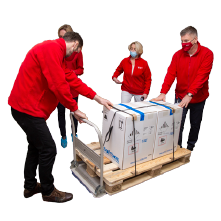
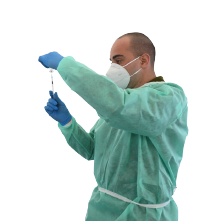

Better prepared for the future: the European Health Union and HERA
As COVID-19 was overcome, the Commission showed determination to better prepare the EU to face public health emergencies in the future.
The Commission has started to build the European Health Union, in which all EU countries prepare and respond together to health crises. We are making sure that medical supplies are available, affordable and innovative, and that countries work together to improve prevention, treatment and aftercare for all sorts of diseases, including for example cancer, a disease that only in 2020 was diagnosed to 2.7 million people in the EU and claimed the lives of another 1.3 million people. Moreover, in June 2023, the Commission unveiled the EU’s first comprehensive approach to mental health, reflecting recommendations from citizens at the Conference on the Future of Europe.
The European Health Union consists of three pillars:
The first is to improve EU coordination in times of serious, cross-border health threats and public health emergencies. The Commission proposed to reinforce the mandates of EMA and the ECDC, allowing them to intervene more quickly and better support the Member States.
In addition, the Commission established its own Health Emergency Preparedness and Response Authority (HERA). HERA’s responsibility is to ensure that the EU and Member States are ready to act in the face of cross-border health threats. Its mandate covers both the strengthening of preparedness in advance of future emergencies and the implementation of a swift and efficient response once crises hit.
HERA is funding the development, procurement, and deployment of key medical countermeasures, including by contributing to the rescEU strategic reserves deployed across the EU. And with HERA Invest, an investment fund worth €100 million, HERA is also supporting innovative health companies in the EU to bring their ideas to the market.
The fact that the EU is now better prepared for new pandemics was illustrated by HERA’s quick reaction to the emergence in the EU of Mpox. Within only weeks, HERA secured contracts for the delivery of vaccines.
The second pillar consists in ensuring the availability of qualitative, innovative, and affordable medicines. The Commission has proposed a revision to the EU’s pharmaceutical legislation and a set of actions with a particular focus on ensuring the availability of critical medicines and strengthening their supply chains.
We set up a Critical Medicines Alliance, bringing together the Commission, national governments, industry and civil society to identify challenges and policy solutions to medicines shortages, and in December 2023 we presented the first version of a Union list of critical medicines, with over 200 active substances for which continuity of supply is a priority.
We also presented the European Health Data Space (EHDS), agreed by co-legislators in March 2024. The EHDS will help the EU to achieve a leap forward in the way healthcare is provided. It empowers people to control and utilise their health data across the EU. It fosters a genuine single market for digital health services and products, and it offers a trustworthy and efficient framework to use health data for research, innovation, policymaking and regulatory activities, while ensuring full compliance with the EU's high data protection standards.
The third pillar focuses on the fight against cancer: in 2021, President von der Leyen presented Europe’s Beating Cancer Plan, which will make €4 billion of funding available to fight cancer. These funds are being used to finance projects in the area of early cancer detection and screening. Other projects are financing the development of a curriculum for inter-speciality training, as well as a network of Comprehensive Cancer Centres and new Networks of Expertise which will enhance collaboration and knowledge sharing among experts. We are also supporting awareness raising campaigns about the benefits of vaccination against the human papillomavirus (HPV), and actions to allow cancer patients and survivors use eHealth technologies, so they can more easily access treatment summaries.


